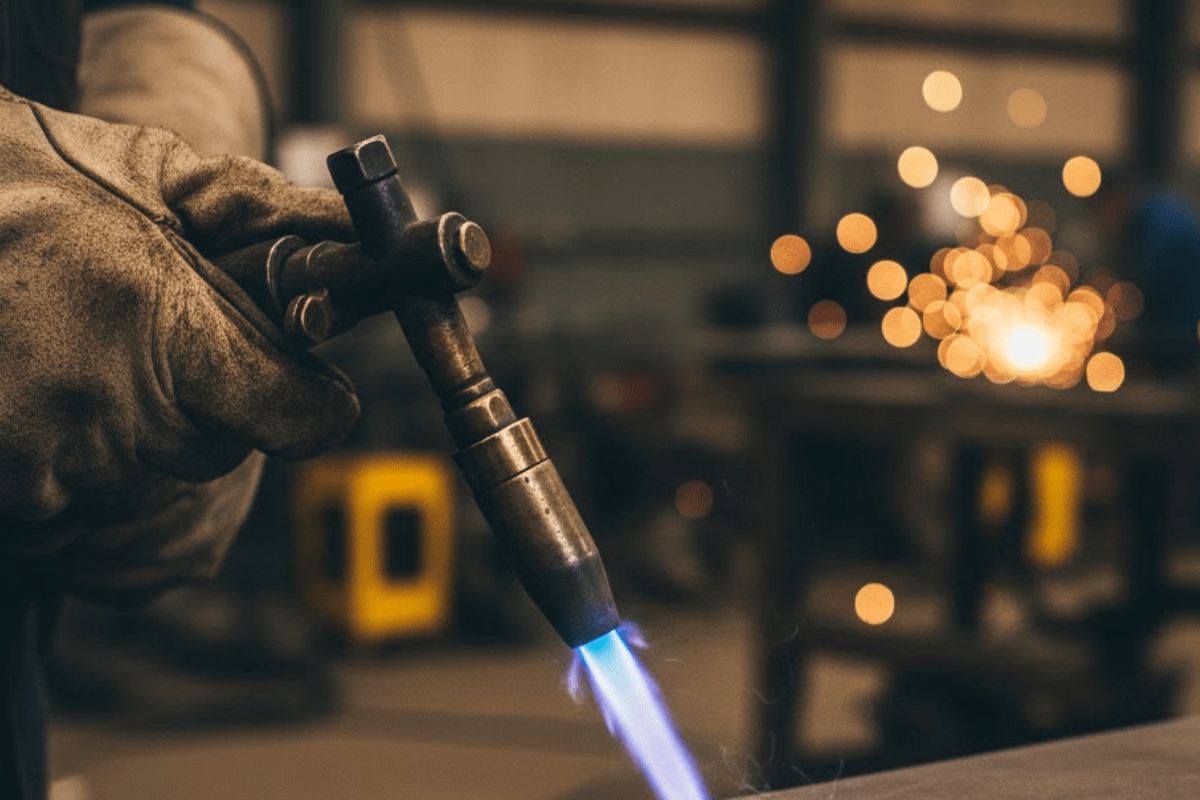Resistance welding is a cornerstone process in modern metal fabrication, valued for its speed, strength, and precision. If you’re a small shop owner or manufacturing lead in Fairview, TN or surrounding regions, understanding how resistance welding works (and how it can help your production line) could give you a serious edge in today’s competitive market.
In this guide, we’ll break down what resistance welding is, how it works, its key types, and when it’s the best solution for your fabrication needs.
What is Resistance Welding?
Resistance welding is a process that joins two or more metal surfaces by applying pressure and passing an electrical current through the metal. The resulting heat, generated by the resistance to electric current, causes the metal to fuse together at the contact points.
Unlike arc welding or laser welding, this method does not require filler metal, flux, or shielding gases.
How Does Resistance Welding Work?
The fundamental principle of resistance welding is Joule heating—heat produced by electric resistance. Here’s how it works:
| Step | Description |
| 1. Pressure Applied | Electrodes clamp the metal sheets together. |
| 2. Current Passed | A high-amperage current flows through the metal for a short time (typically milliseconds). |
| 3. Heat Generated | Resistance at the contact surfaces creates localized heat. |
| 4. Weld Formed | The metal melts and fuses, forming a strong bond upon cooling. |
The process is quick, repeatable, and clean, making it ideal for high-volume production environments.
Types of Resistance Welding
There are several types of resistance welding, each suited for different fabrication needs:

| Type | Description | Common Uses |
| Spot Welding | Welds formed at single points between metal sheets. | Automotive body panels, HVAC sheet metal |
| Seam Welding | Continuous welds formed by rotating wheel electrodes. | Fuel tanks, oil drums |
| Projection Welding | Uses protrusions (projections) to focus the weld current. | Fastening nuts/bolts, cross-wire welding |
| Flash Welding | Joins irregular or large parts with controlled arcing and pressure. | Rail and structural welding |
| Upset Welding | Similar to butt welding; parts are pre-heated and then forged together. | Round bars, rods, wires |
Benefits of Resistance Welding
Here’s why many shops in Fairview and across Middle Tennessee rely on resistance welding:
- Speed – Weld cycles last milliseconds
- Clean Process – No filler metal or fumes
- Energy Efficient – Lower heat input compared to arc welding
- Consistent Quality – Automated for repeatable welds
- Low Operating Cost – Minimal consumables
Applications in Fairview and Tennessee Manufacturing
Resistance welding plays a major role in local and regional industries:
- Automotive manufacturing in Nashville’s supplier corridor
- HVAC and ductwork fabrication across residential and commercial markets
- Metal shops in Fairview, Franklin, Columbia, and Dickson
- Aerospace component assembly for contractors in Middle Tennessee
- Battery and electronics production emerging in the region
Local Insight: Fairview is part of a growing network of industrial towns supporting vehicle manufacturing, trailer fabrication, and custom metalwork.
Resistance Welding vs. Laser Welding
If you’re comparing methods for your Tennessee-based shop, here’s a quick side-by-side:
| Feature | Resistance Welding | Handheld Laser Welding |
| Heat Source | Electrical resistance | Focused laser beam |
| Speed | Extremely fast | Fast, but setup dependent |
| Precision | High for sheet metal | Very high for detailed work |
| Materials | Best for thin, conductive metals | Versatile across thicknesses |
| Automation | Ideal for high-volume automation | Excellent for semi-automated/manual jobs |
Laser welding may offer more flexibility, but resistance welding remains unbeatable for automated sheet metal assembly.
Is Resistance Welding Right for Your Shop?
You should consider resistance welding if you:
- Work with thin-gauge, conductive metals
- Need fast cycle times and repeatability
- Operate in automotive, HVAC, appliance, or aerospace industries
- Want low-cost, high-throughput welding systems
For more flexibility and advanced capability (especially with aluminum or stainless), laser welding—like the kind we offer at Fiber Laser Welder LLC—might be the right upgrade.
Get Expert Welding Solutions in Fairview, TN
Resistance welding stands out as a robust, efficient, and cost-effective solution for fabricators and manufacturers—especially those working with thin, conductive metals and high-volume production lines. Its ability to deliver strong, repeatable welds without the need for filler material, shielding gases, or extensive cleanup makes it a favorite in industries ranging from automotive and HVAC to electronics and aerospace
At Fiber Laser Welder LLC, we proudly serve fabricators across Fairview. We help businesses choose the right welding method and the right machine to get the job done fast and clean.







